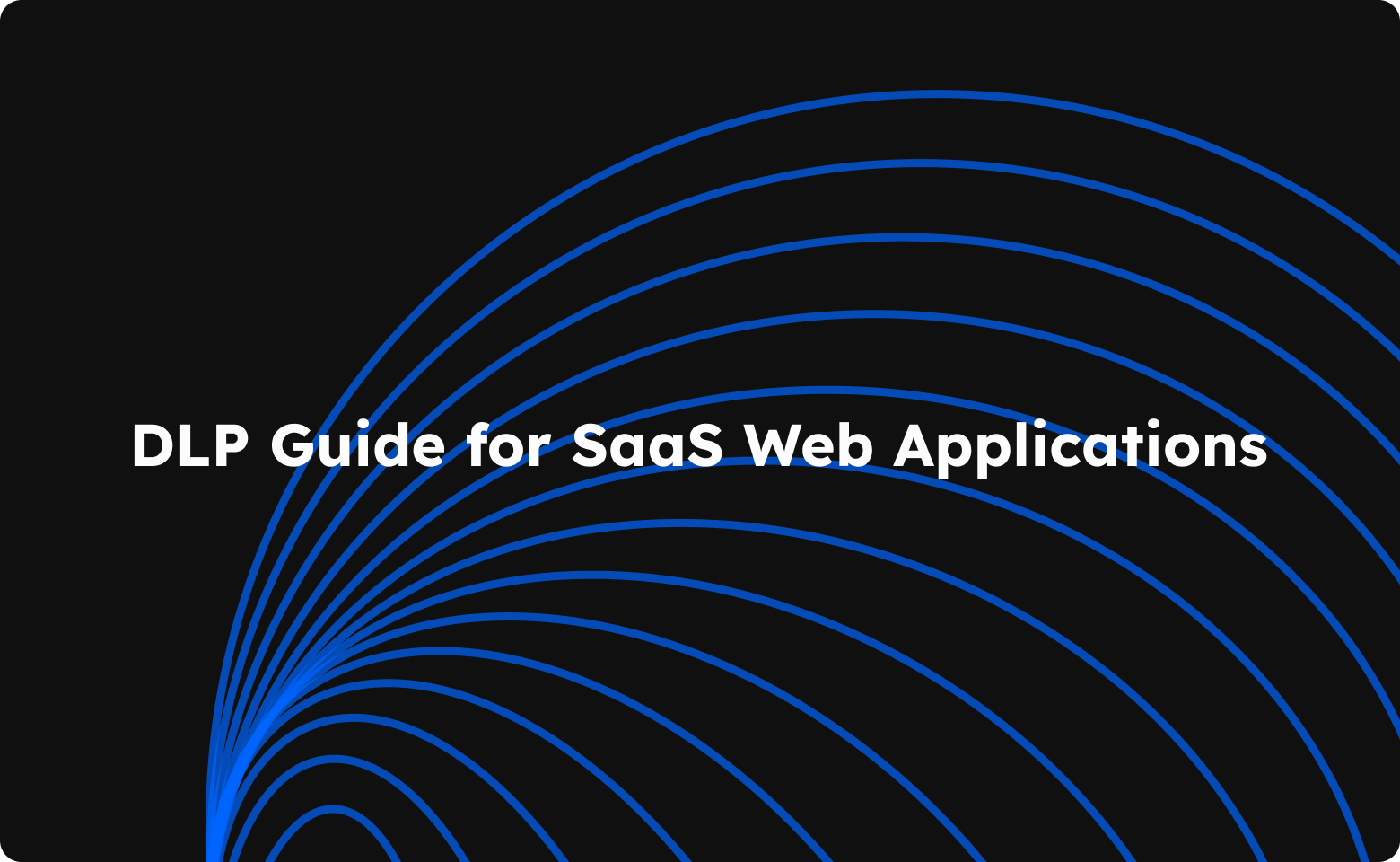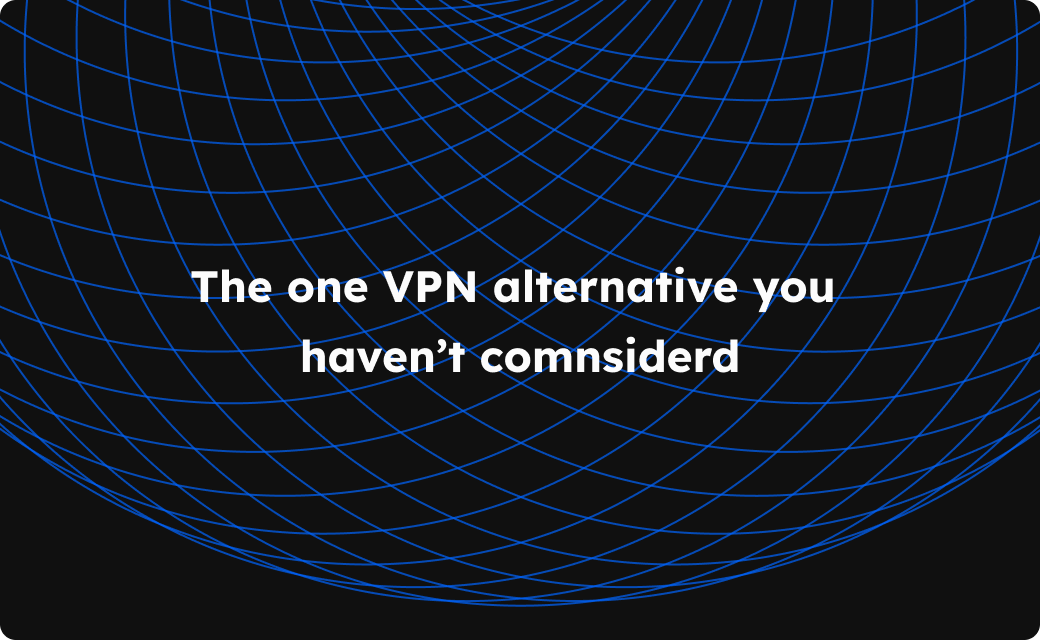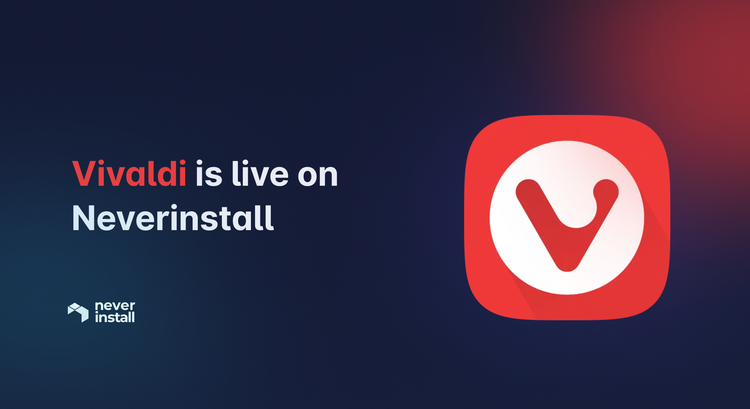Private Browsers: Understanding the future of web browsing
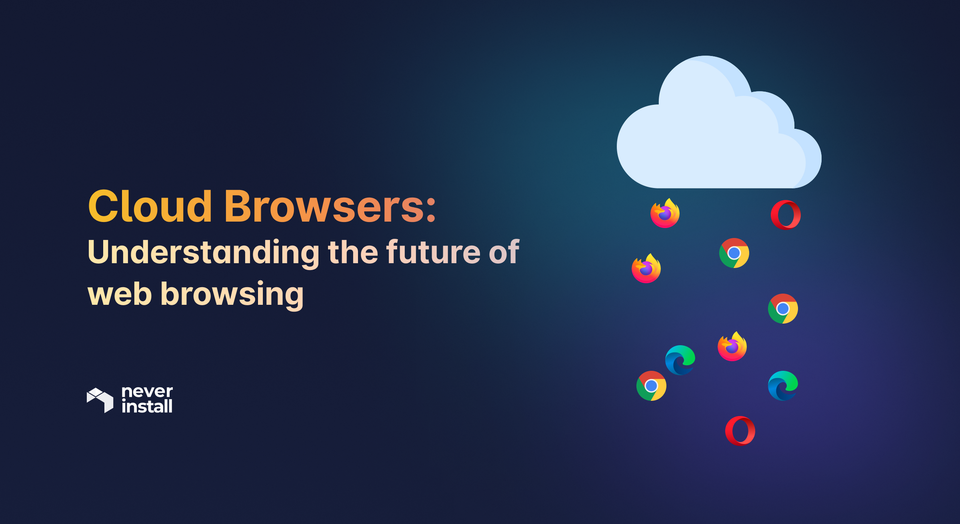
The perils of the native browser
Data from the first quarter of 2020 reveals that within most regular internet users’ tech stacks, a web browser was the second most common juncture for exploit attacks (attacks exploiting security vulnerabilities).
In other words, the browser you use every day (Chrome, Firefox, Safari, Opera, Edge) carries a high likelihood of being infested by web-based vulnerabilities, all the way from malware, malicious hackers, and viruses whose names you might not know yet.
With the emergence of HTTPS authentication in the 1990s, devs and internet users hoped that they would see a marked improvement in online security. While that did undeniably happen, to this day, many websites simply do not provide HTTPS protection or have flawed HTTPS certificates.
In other words, you are risking malicious infiltration every time you use the browser on your device - desktop, laptop, or mobile. However, technology is nothing if not adaptable. Cloud browsers are an alternative to your native browser (the one installed on your device) that already exists.
What is a native browser?
Native browser essentially refers to the regular browsers you use daily to access the internet. You install it on your device, open it, and use it to access content on the World Wide Web. Think of your web browsers as a set of code that collaborates to perform specific tasks - locate, obtain and render content from the internet per the client's request.
Native browsers work on a client/service model - the browser (the client) sends a request to the web server for information, the server locates the information, sends it back to the client, which displays it via any internet-enabled device.
Modern browsers come with full-featured software architecture enabled to translate and render HTML, JS, and AJAX-based content sourced from web servers. A wide range of browser-compatible plugins also exists to enable browsers to render multimedia content (sound, video, special effects, etc.) to the extent that you can use browsers for video conferencing, software development, and gaming, and the like.
Private browsers–familiar yet better
A private browser elevates the traditional browsing experience with a crucial distinction: it focuses on maximizing user privacy and security. This unique approach distinguishes it significantly from native browsers, which operate directly on your device. Private browsers prioritize safeguarding your digital footprint by implementing advanced security measures and privacy protocols.
Hosted on secure servers, private browsers process user commands in a manner that keeps them isolated from your device. This isolation ensures that any web content interaction occurs within a secure environment, effectively shielding users from the plethora of online threats. Centralized management of these browsers not only enhances security but also improves the efficiency and scalability of web browsing.
Benefits of Private Browsers
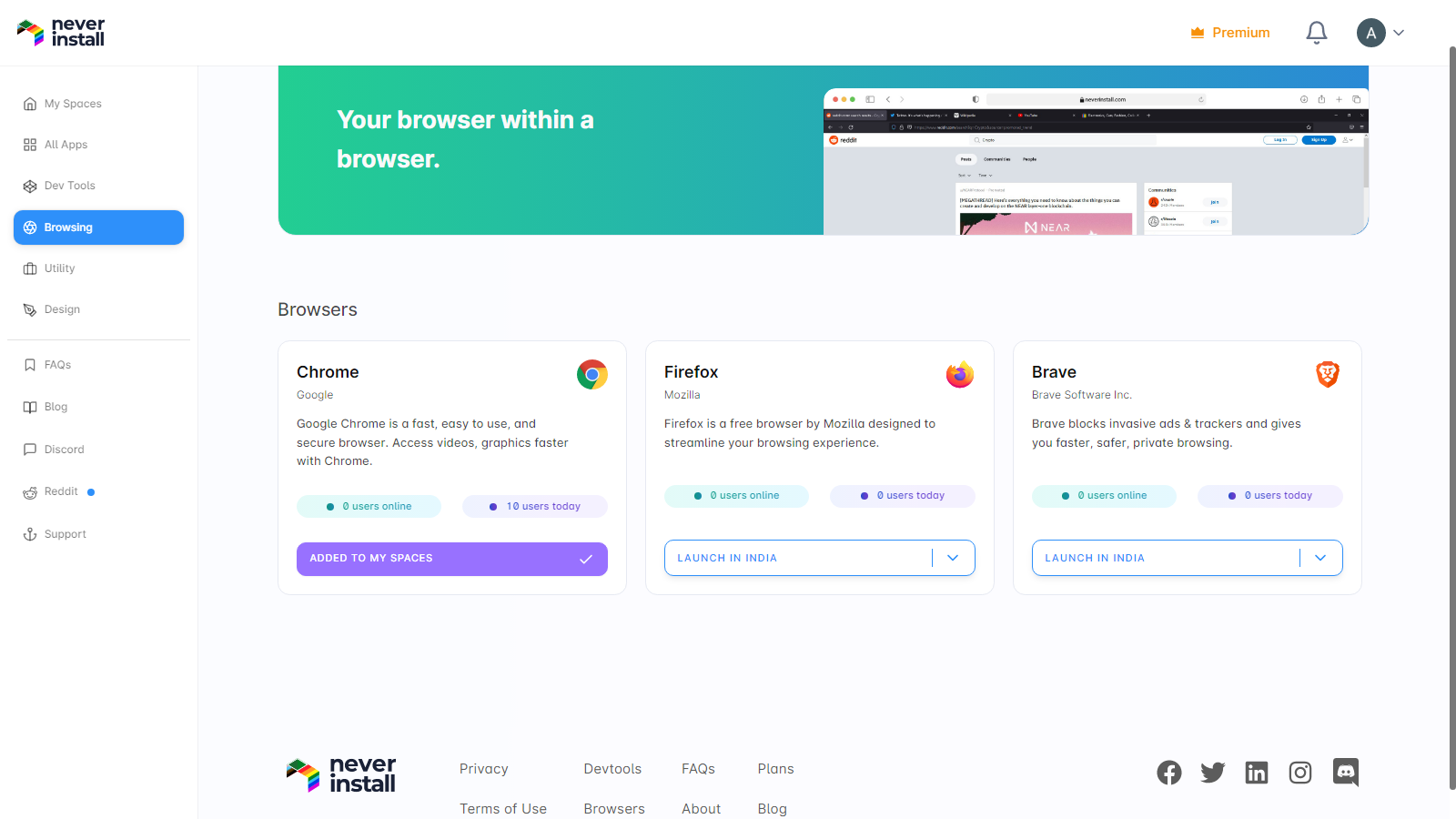
Private cloud browsers offer multiple advantages that give them a serious leg up over native browsers. The most significant of them are listed below:
- Improved Security: Since web code is not executed on the user’s device with private browsers, this automatically blocks malicious code, potential threats, or anything that would risk the users’ online security.
Further, if you’re browsing within the secure cloud, you don’t need to install, manage and update software for added functions such as data loss protection, device security, content filters, firewalls, SSL inspection, and the like.
- Enhanced Privacy: Unlike native browsers, private browsers will safeguard a user’s identity, location, and other data by processing the information through a data center on the cloud. However, if this is a priority for you, ensure that the service you are using to access the private cloud browser does in fact provide this functionality.
Consider Neverinstall, where we allow you to access the internet from different locations across the world, much like a VPN. The IP address of the user is completely masked, allowing users to access data across the world anonymously. The VPN-like nature of browsers on the Neverinstall platform also secures personal information and private data.
Suggested read - Your browser is the new VPN
- Cloud service benefits: Cloud browsers tend to carry several merits when it comes to maintenance, scalability, and capacity. Typically, you do not need to bother with updating your browser, installing new plugins to match new content formats, or managing your memory for optimal browser performance. The bulk of the capabilities, however, depend on the provider.
For example, at Neverinstall, one of the things we do is enable users to browse the internet at speeds of up to 1 Gbps. While a user’s ISP (internet service provider) might deliver lower bandwidth, the user can browse the internet at 1 Gbps even with a connection as slow as 1 Mbps. We do this by running the browser in a remote native environment with a high-speed internet connection and streaming it to the screen of the user, allowing them to interact with it.
Read here to know more about how we do it.
The many positives it brings to the web browsing table may very well become the future of internet exploration. Why wouldn’t users pick a more secure solution that protects their data and device, and reduces their maintenance burden?
Explore Neverinstall and see exactly how well cloud, private browsers work for you.
Author: Shreya Bose
Shreya is a seasoned tech writer. Apart from technology, she has written about healthcare, heavy metal, alcohol, and coffee. When she is not writing, she is reading, drinking tea, and waiting for naptime.



